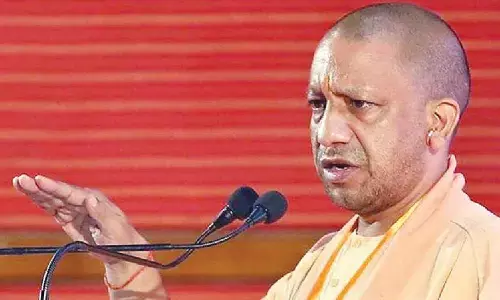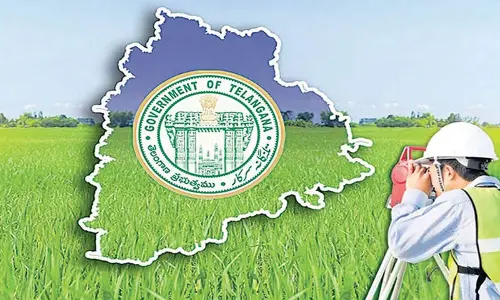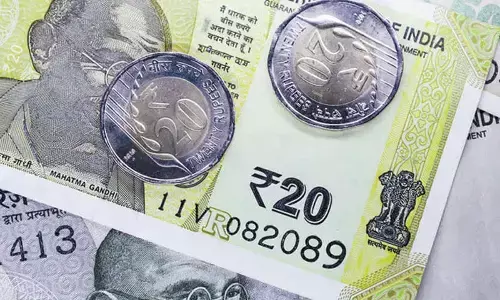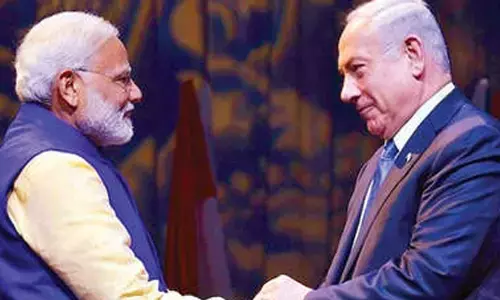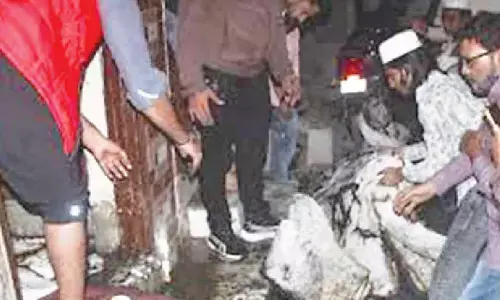The idea of India

Kuldeep Nayar: The Idea of India, THE idea of India is neither territorial, nor ideological. It also has little to do with economics or politics. The idea, the ethos of this country and what we stood for during the freedom struggle, is democracy, pluralism and egalitarianism.
THE idea of India is neither territorial, nor ideological. It also has little to do with economics or politics. The idea, the ethos of this country and what we stood for during the freedom struggle, is democracy, pluralism and egalitarianism.

Beginning with India’s first Prime Minister Jawaharlal Nehru, who stood for a socialistic pattern of society, to Prime Minister Manmohan Singh, believing in free market priorities, the idea has been mutilated by the party which has come to head every government. The ethos has been pushed aside. The idealism has taken a back seat and even the youth is more interested in jobs than in harking back to a past based on a value system.
New rulers have, no doubt, come through a democratic process, but they have used the Lok Sabha election campaigns to attain power without bothering about the means or methods. One rough estimate is that Rs 5 lakh crore was spent by the different candidates, financed by people from the corporate sector.
Consequently, there is little that the new Prime Minister or his colleagues can do because they are beholden to the money bags for the positions they occupy. Even otherwise, they are far from the ethos of the national struggle. I am not surprised that the new generation is blank about the sacrifices which the nation made to wrest itself free from an unwilling and barbaric Great Britain.
How many remember that the Jallianwalla Bagh massacre represents sheer brutality of the British rulers and the defiance of the ordinary innocent Indians, our ancestors, and who had focused all their attention on independence? One friend of mine, an Indian settled in London, has rightly suggested that there should be a holiday to commemorate the memory of those who jumped into a well to save themselves, as well as others who refused to move even after the British-led soldiers had exhausted their last bullet.
How does the new government clear the debt of their forefathers’ sacrifices? We cannot recover from the British authorities in London the money which they took from India through exploitation. But we can at least get the symbols of our heritage which are accumulating dust in the basement of the Victoria and Albert museums. I recall that when the Nehru Centre was opened (the money was spent by New Delhi), I asked the curator how long would it take for the Indians to have access to the relics of the Raj. She said that only five per cent of what they have had been put on exhibition after 35 years. The rest would have to wait.
As India’s High Commissioner in London I took up the issue of returning the Kohinoor diamond to India. This priceless relic was once a part and parcel of the treasury of Mahraja Ranjit Singh and is thought to have originated from the Golconda mines in Hyderabad. The reply of top British officials from the foreign office was that the Kohinoor was now studded in their monarch’s crown. I pursued this issue in the Rajya Sabha when l was its member. I was shocked when the then foreign minister of the BJP government, Jaswant Singh, requested me not to press the matter because it would tell upon the relations between India and Great Britain. I am hoping against hope that the new government would rectify the mistake which I committed by keeping quiet.
For the new rulers this is a golden opportunity to revive those prized values of innocence and decency with which India was associated long before the advent of colonial rule. How many remember the notorious Robert Clive, first Governor General of Bengal, and his successor, Warren Hastings, who exploited the country and used their ill-gotten wealth to invest in the UK? The 300,000 pounds that Clive exacted from the rich Bengalis was used to buy his membership of the House of Lords, as well as huge property. The famous Somerset House in London was built with Clive’s assets. When impeachment proceedings were launched against him, he was quoted as saying how astounded he was by his own “moderation.” Nevertheless, Clive was unable to live with his guilty conscience and committed suicide. Impeachment proceedings were also launched against his successor in India, Hastings.
The most effective weapon the British had to conquer India was to divide communities so that they could act as arbitrators and justify their rule on the grounds that they were trying to bring peace among people of different religions. In the Lok Sabha elections some political parties have encouraged cleavage between Hindus and Muslims. These political parties should remember that although democracy has taken root in the West, there is more than one foreign government that would love to get its foothold in our country. We represent the rich pickings for one and all. Traditionally, we were known as the sonay ki chidiya (golden sparrow).
To maintain unity of the country and strengthen the faith of the common man in our political process, we will have to go back to the ethos of our national movement: that is, all communities belonging to different religions and castes are equal in the eyes of the law and as laid down by the Indian Constitution.
I hope the Lokpal Bill, which is pending before parliament, will be passed soon by both the houses of parliament so that even those at the top have to show their accountability. There should be no vindictiveness or harassment of those who have lost.
The top priority of the new government should be how to uplift the 30-crore people who are still wallowing in poverty and hunger. One estimate is that the 30-crore people, equal to the entire population of Europe, go hungry to bed. This defeats the ideal of egalitarianism which was promised after independence. It’s up to the new rulers how they rectify it, but their steps should be seen as moving towards that direction. This process cannot tolerate corruption which l find at every tier of the government and political parties.



